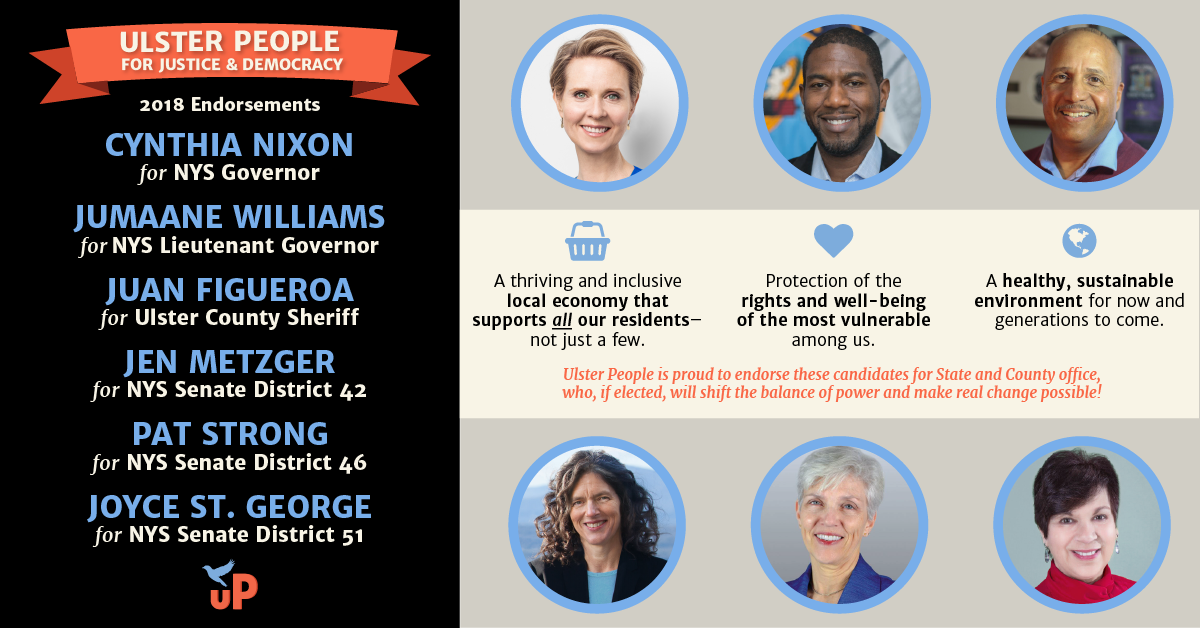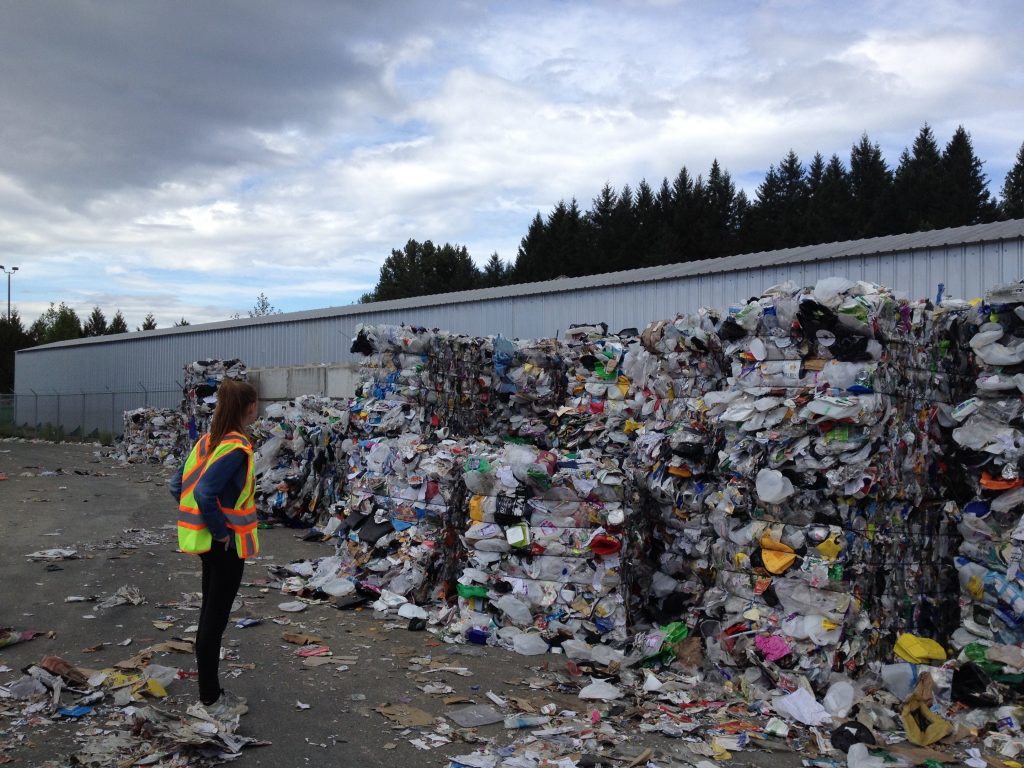
Ulster People: Mark your calendars! This one is for us!
A public hearing has been scheduled for Proposed Local Law No. 5 of 2019, the “Food Waste Prevention and Recovery Act”, on Thursday, October 10, 2019 at 6:15 PM at the Ulster County Office Building, 6th Fl., 244 Fair St, Kingston.
Please come and make your voices heard!
Food Waste, you say? What’s the big deal?
Americans waste a lot of food–about 133 billion pounds a year. That’s roughly a third of all the food produced in the U.S. While most people understand what a tragedy it is to waste so much food when there is so much hunger, what many fail to understand is that throwing food away contributes to another global crisis: climate change.
When food ends up in landfills and rots, it produces huge quantities of methane–maybe not as much as cars or cows, but it’s in third place. Methane is about 30 times more potent than carbon dioxide as a heat-trapping gas.
Fun Fact: Ulster County throws away 40,000,000 pounds of food scraps each year. That’s about 30% of the trash we send to landfills upstate.
So, YES, it is a big deal. We all stand with Greta Thunberg when she says, “Right here, right now is where we draw the line.” Right? Well, the “Food Waste Prevention and Recovery Act” is about large-scale composting, and composting wasted food reduces the environmental pollution that contributes to global climate change. It also saves money.
NO, composting food scraps will not solve global climate change–or even the problem of what to do with the rest of our garbage when the Seneca Meadows landfill closes in 2025–which is also a big deal. But one thing at a time. Requiring large-scale producers of food waste to compost is a start. And it’s a line we can draw now.
Ulster County is Ready!
Visionary environmentalists in Ulster County have been composting here for decades. Mohonk Mountain House, for example, has modeled stewardship of its natural resources by composting tons of consumer food waste every month and using the end-product to fertilize it’s famously spectacular gardens. Similarly, the Frost Valley YMCA has operated what was, at its inception in 1990, one of the few institutional food waste composting systems in the entire country. The facility serves 30,000 guests annually, composting all of the food waste for use in the camp’s greenhouses. That same year, New York State’s Department of Corrections began a composting program which 30 years later employs up to 1100 inmates at 29 state facilities. Aside from savings in transportation and tipping fees and methane reduction, the program provides relevant and productive inmate work experiences.
In 2012, the Ulster County Resource Recovery Agency (UCRRA) began an organics recovery pilot program to create an alternative to landfill disposal of food waste. Before the program began, the County was sending 20,000 tons (40,000,000 pounds) of food waste every year to the Seneca Meadows landfill, 250 miles away. In the last 3 years of operation,
- 7859 tons or organics have been composted,
- $809,498 in tipping fees have been saved,
- 224 tractor trailer transports didn’t make the 250 mile run, and
- 21,280 gallons of diesel fuel was saved.
These programs, and others like them, including Greenway Environmental Services and the Community Composting Company, are already up and running in Ulster County. They have demonstrated the practicality and economic feasibility of mandatory county-wide composting for large food waste producers. They have reduced the cost of disposal and transport, reduced greenhouse gas emissions, and created an end product that improves soil quality and carbon sequestration, reducing the need for chemical fertilizers and pesticides. They demonstrate that Ulster County is ready to take this on.
Once Again, We Are Ahead of the Curve
Ulster County’s Climate Smart Commission already encourages local businesses to participate in composting programs as part of its new Green Business Challenge, but participation has been voluntary. That is going to change in 2022 when a new state law (S1508C) goes into effect requiring businesses producing two tons of food waste per month to compost.
But it could happen sooner in Ulster County.
The “Food Waste Prevention and Recovery Act” would take effect in 2020. We would be two years ahead of the game. The State law exempts healthcare facilities, schools and businesses more than 25 miles from a composting facility (the vast majority). Our law would apply to all businesses in the County that produce 2 tons of food waste a month, and it will eventually cover even smaller generators, making the transition to the State law requirements far easier.
Ulster People Make a Difference! Let’s Make This Happen!
As with the plastic bag and straw legislation, Ulster County has yet another opportunity to set the environmental standard for Albany and other NY Counties.
Showing up for public hearings is one of the most effective ways Ulster People can show our support for those legislators who support our progressive platform. It is an effective way to make our aspirations and our concerns visible to our legislators– and make sure that our voices have been heard by the County Executive when this legislation lands on his desk.
Please show up on Thursday, October 10th!
Tell our legislators that right now is where we draw the line!
It’s definitely worth an hour of your time.
Be a compost champion!
!

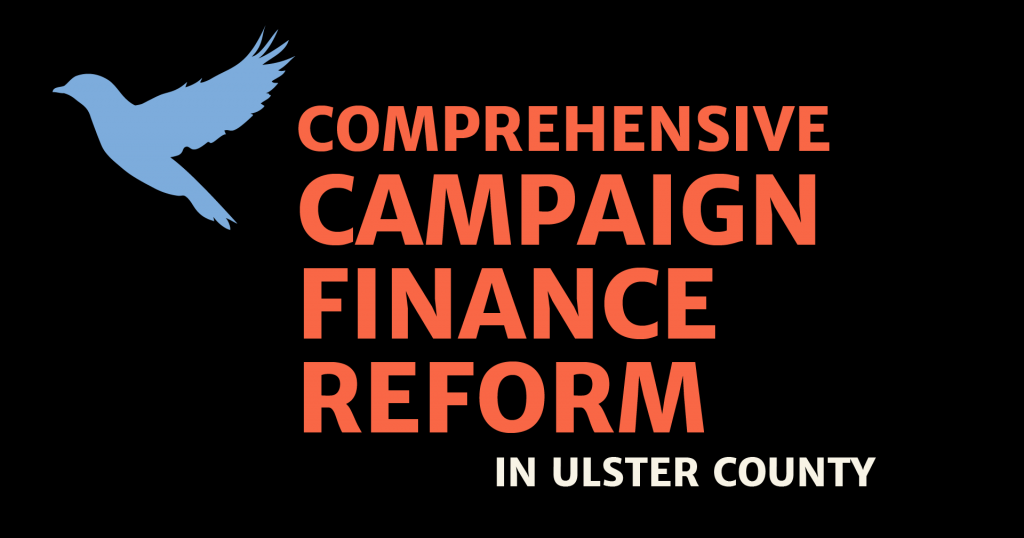

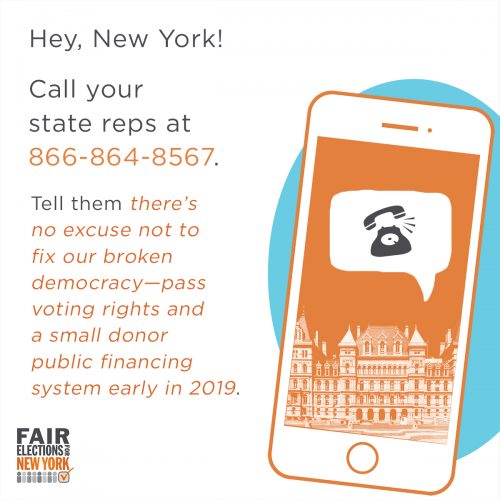



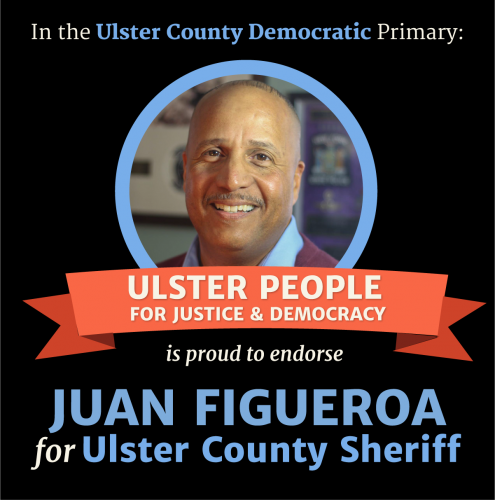

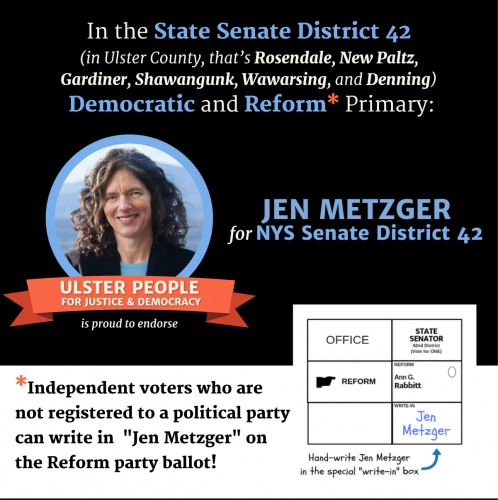
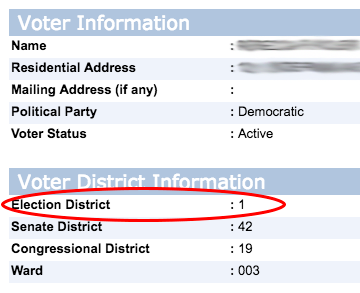
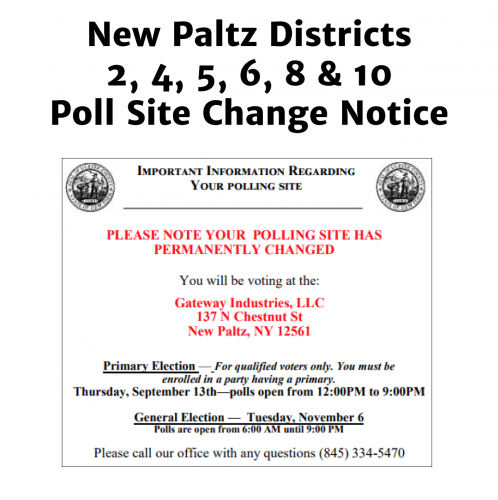
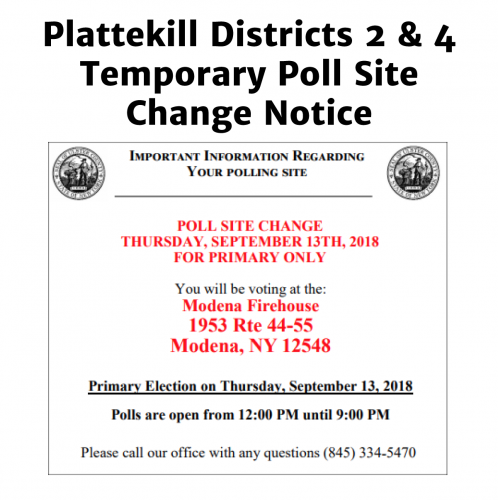


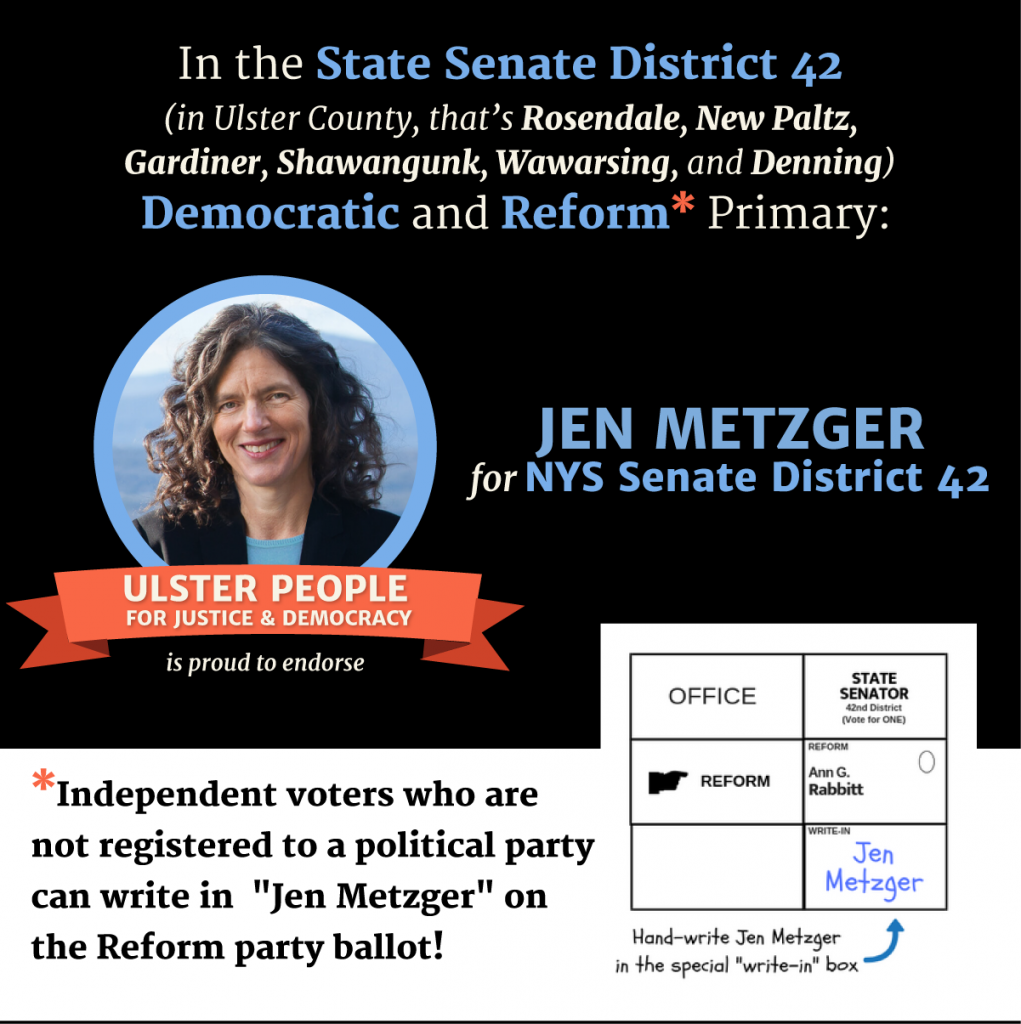







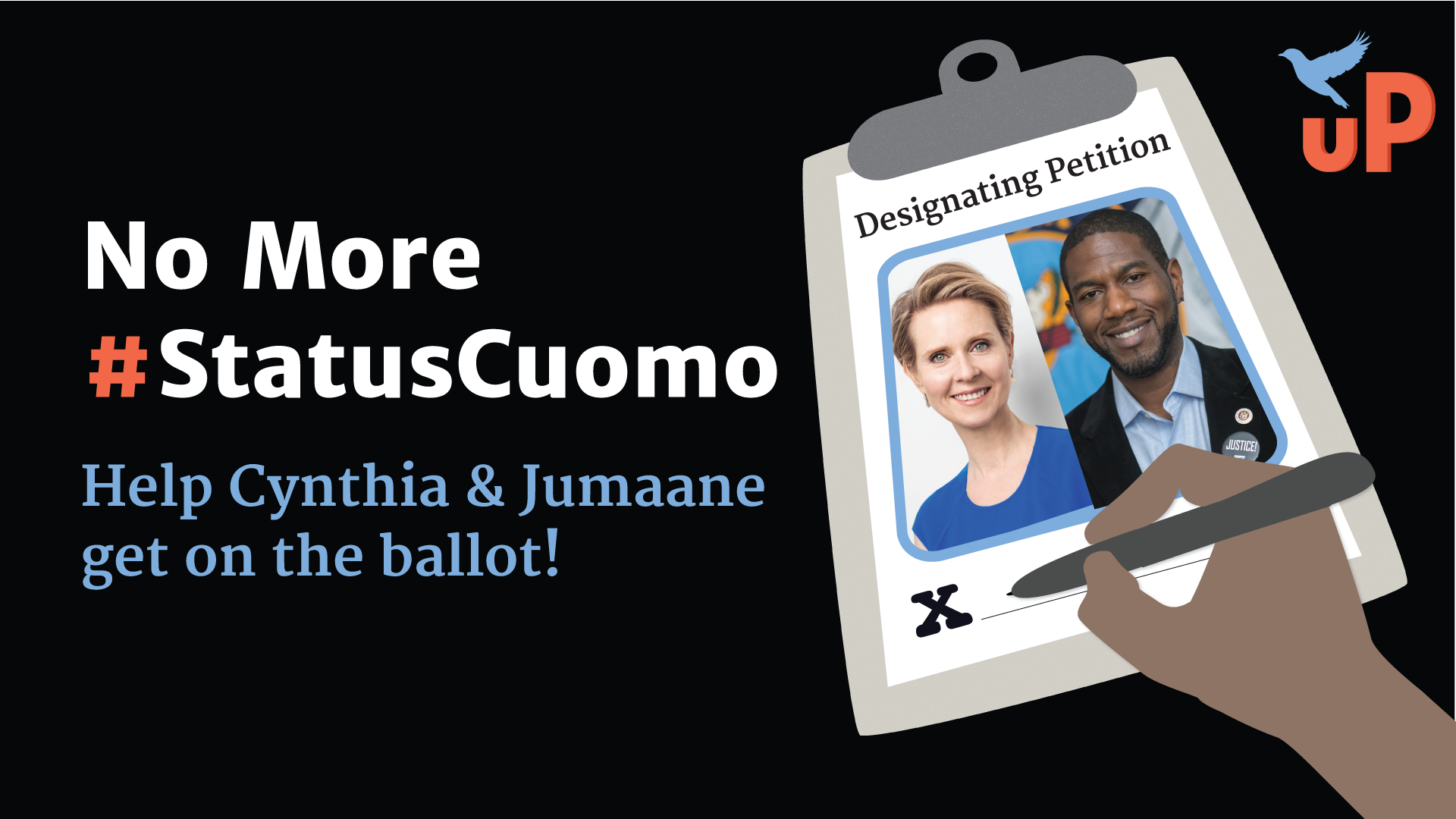
 Would you like to carry a petition to collect signatures from friends, co-workers, and neighbors? You can get a walk-list to go door-to-door, attend a farmer’s market or other public event with a clipboard, or just gather signatures at work! Contact
Would you like to carry a petition to collect signatures from friends, co-workers, and neighbors? You can get a walk-list to go door-to-door, attend a farmer’s market or other public event with a clipboard, or just gather signatures at work! Contact  Cynthia Nixon, though best-known as an award-winning actor, is a long-time activist for public schools, marriage equality, and women’s rights. She advances an agenda for a New York that serves the many, not the few: rent justice, marijuana legalization, improved public transportation, a clean energy economy, and drivers licenses for all. She has great clarity about the specifics of Albany cronyism and the inhumane consequences of austerity. She is refreshingly honest about the areas in which she lacks experience and surrounds herself with good, experienced people while leveraging her celebrity into a formidable force against Cuomo’s $30 million war chest. Just two months into her candidacy, she has deftly used her intelligence, humor, and media connections to promote her platform in ways that have already moved the conversation– and Cuomo – to the left.
Cynthia Nixon, though best-known as an award-winning actor, is a long-time activist for public schools, marriage equality, and women’s rights. She advances an agenda for a New York that serves the many, not the few: rent justice, marijuana legalization, improved public transportation, a clean energy economy, and drivers licenses for all. She has great clarity about the specifics of Albany cronyism and the inhumane consequences of austerity. She is refreshingly honest about the areas in which she lacks experience and surrounds herself with good, experienced people while leveraging her celebrity into a formidable force against Cuomo’s $30 million war chest. Just two months into her candidacy, she has deftly used her intelligence, humor, and media connections to promote her platform in ways that have already moved the conversation– and Cuomo – to the left. Jumaane Williams has been a forceful voice on the NYC Council for affordable housing, anti-gun violence measures, fair policing, equity, and social justice. He authored the legislation that ended Stop and Frisk in NYC, and championed youth employment initiatives. He has a background in community organizing and has prioritized housing initiatives and tenants’ rights. He is also a committed immigrants rights activist. He is running to be “the voice of the people in state government,” with a vision to transform the office of Lieutenant Governor into the role of independent advocate for all New Yorkers.
Jumaane Williams has been a forceful voice on the NYC Council for affordable housing, anti-gun violence measures, fair policing, equity, and social justice. He authored the legislation that ended Stop and Frisk in NYC, and championed youth employment initiatives. He has a background in community organizing and has prioritized housing initiatives and tenants’ rights. He is also a committed immigrants rights activist. He is running to be “the voice of the people in state government,” with a vision to transform the office of Lieutenant Governor into the role of independent advocate for all New Yorkers.